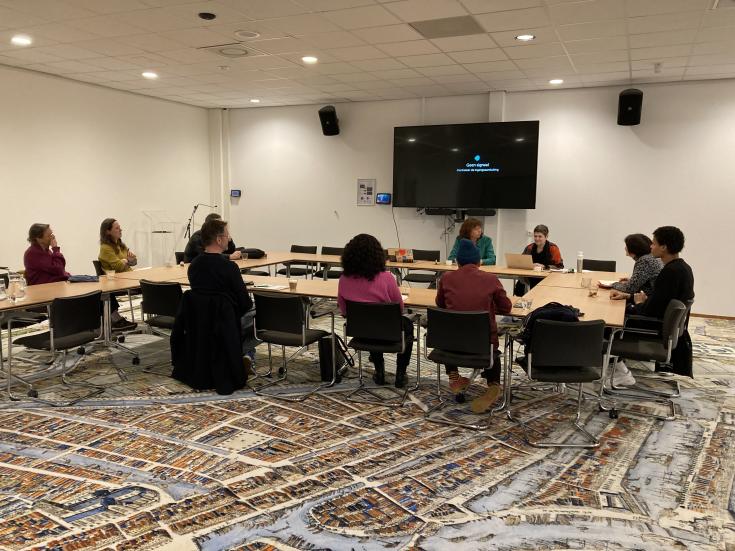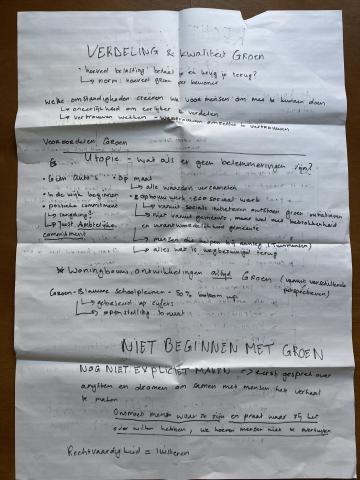Local Stakeholder Meeting #2 – City of Rotterdam

Rotterdam’s Second Stakeholder Meeting: Defining Just Green Spaces
On February 13, 2025, Rotterdam hosted its second JUSTGREEN stakeholder meeting at the city archives, where participants gathered on a carpet depicting the historic map of the city. Though the group was small, it included representatives from health services (GGD), housing associations, Opzoomer Mee, and nature education organizations—each bringing valuable perspectives to the discussion.
The session focused on three key pillars of just urban greening:
- Recognition – Understanding and acknowledging diverse perspectives.
- Inclusive Processes – Ensuring broad participation in decision-making.
- Fair Distribution – Equitable access to green spaces across the city.
Instead of using a municipality-driven scorecard approach, this meeting took a more open-ended discussion format, centering around two fundamental questions:
- What does just greening mean to you?
- How does just greening relate to your organization?

Key Takeaways
Equitable Access to Green Spaces
Justice in greening means ensuring everyone, especially vulnerable groups, benefits from urban nature. Green spaces should be accessible, usable for all—especially children—and integrated into daily life. To achieve real equality, targeted investments in underserved areas are necessary.
Quality Over Quantity
Green distribution should not only be about adding parks but also about ensuring high-quality, meaningful green spaces. This may require setting standards for new developments and making tough choices about where and how to invest.
Beyond Traditional Participation
Standard consultation meetings often attract the same voices, limiting genuine engagement. To truly reflect community needs, municipalities must be more flexible, listen actively, and invest time in building trust. Engaging with people in familiar, everyday settings—such as local mosques or community hubs—can help reach a wider audience.
Education and Awareness
People who lack a connection with nature may not recognize what they’re missing when it disappears. However, schools in disadvantaged areas often deprioritize nature education in favor of core subjects. Combining these elements could be a way forward, balancing short-term needs with long-term benefits.
A Holistic Approach
Greening should not be treated as an isolated issue but as part of broader neighborhood improvements. Strengthening social connections can naturally lead to green initiatives. There are no quick fixes—meaningful change comes from long-term investment, shared ownership, and allowing communities the time and space to shape their environment.
By fostering collaboration and learning from successful examples, Rotterdam aims to make urban greening more inclusive, equitable, and community-driven.
